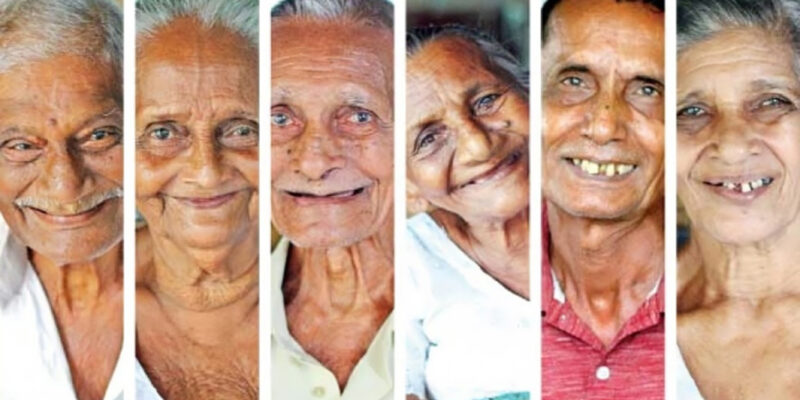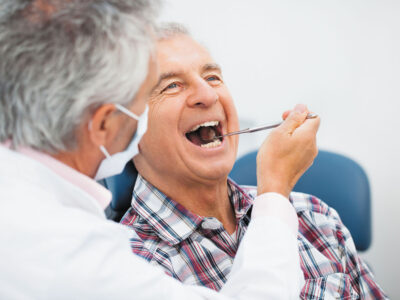This article is penned down by DentalReach Dental Divas Summit (DRDDS) 3 Speaker Dr Smita Athavale.
If you wish to associate with DentalReach or Dental Divas, please get in touch with me – editor@dentalreach.co
Abstract
Treatment of geriatric patients can be quite challenging for dental professional due to various reasons. Understanding the needs of the geriatric patients & treating them with due care is need of the time. A thorough knowledge of geriatric medicine & acquiring the clinical skills to treat the geriatric patients is absolutely essential. Multidisciplinary approach is necessary to understand the oral & general health problems & successful treatment outcome. In this article, an attempt has been made to guide the dental professionals to treat with the geriatric patients with the necessary knowledge & appropriate clinical care. Key words: Geriatric Dentistry, Gerodontology, Gerodontics, Multidisciplinary approach, Oral health care
Introduction
The world is greying & so is India! There is a remarkable increase in the elderly population all over the world. According to the World Health Organization report, by 2023, 1 in 6 people in the world will be aged 60 years & over. As compared to 1 billion elderly population in 2020, by 2050, the elderly population will double i.e., 2.1 billion. (1)
According to Census 2011, India has 104 million older people (60+ years), constituting 8.6% of total population. (2) The proportion of the elderly population in India had increased to 10.1% in 2021 and is further likely to increase to 13.1% in 2023. (3)
In the years to come, the dental professionals will have to treat increased number of elderly patients with complete clinical competence, understanding their special needs & age-related altered pathophysiology. Hence, basic knowledge of geriatric dentistry is imperative for dental clinicians.
Gerodontics, a speciality needed much like pedodontics
Geriatric Dentistry or Gerodontics is the delivery of dental care to older adults involving the diagnosis, prevention & treatment of problems associated with normal ageing & age-related diseases as part of an inter-disciplinary team with other health care professionals. (4)
-
It is a speciality in dentistry that involves multi-disciplinary approach in evaluation of oral health, diagnosis, prevention & treatment planning for senior citizens (60 years and above)
-
Dental treatment for elderly medically compromised patients.
-
Providing palliative treatment and symptomatic relief from oral health problems like mucositis, xerostomia, dental caries and chronic periodontal problems of the elderly.
However, the clinicians need to get themselves geared up & acquire the theoretical practical knowledge of treating the elderly patients with special attention & care. Multidisciplinary team approach is the key to the successful treatment of geriatric patients; hence, the dental practitioner must coordinate with various dental & medical specialities & care givers of the elderly patients.
Geriatric care team – a multidisciplinary approach
Role of dental clinicians in geriatric health care is very important as the geriatric patients come / are referred to dentists for replacement of teeth. Dentists can identify the oral manifestations of systemic disorders & guide the patients to physician for treatment. They can diagnose existing oro-dental problems & guide the patients for a complete oral rehabilitation.
Before starting the dental treatment for the elderly, it is essential to coordinate with the geriatric patient’s general physician. As per the ongoing treatment & general health care needs of the patient, the dental practitioner can take help & advice from the following medical & paramedical specialities:
-
General Physician / Geriatric Physician
-
Psychiatrist / Psychologist
-
Physiotherapist
-
Dietician & nutritionist
-
Nursing staff
For effective treatment planning & execution, the clinical geriatric dentistry should involve the following dental specialities working together:
-
Oral medicine, diagnosis & radiology
-
Oral surgery
-
Periodontics
-
Restorative dentistry & endodontics
-
Prosthodontics & Implantology
In order to understand the geriatric population’s general & oral health care needs, public health medicine & community dentistry experts can play a major key role & help bringing improvement in the oral health of the geriatric population.
Protocols in geriatric dental care
All these medical, paramedical & dental experts involved in the health care of the geriatric patient should effectively communicate with each other for better treatment outcome. However, in case, immediate help from the expert is not available, the dental clinicians should follow some rules or protocol for treating the elderly patients.
-
Thorough medical, social & dental history of the patient with the help of accompanying relative / friend.
-
Contact patient’s Physician for known allergies & ongoing treatment if any.
· Recent (done within last 2 months) medical / dental reports (blood tests, X rays or any other tests)
· Check the ongoing medicines / prescriptions (avoid poly-pharmacy & drug interaction).
· Take an informed consent in the language comprehended by the patient & relative.
· The consent must be duly signed (or thumb impression of patient, in case the patient is debilitated or illiterate) by the patient & also signed by the primary care giver prior to commencing any treatment.
· Talk to the patient & the primary care giver about the chief oro-dental problem as well as other problems / ailments that the patient is suffering from.
· Insist on having a responsible accompanying person (primary care giver, close relative or family friend) for every appointment for necessary information & easy conversation or in case of any dental / medical emergency.
· Depression, Delirium & Dementia can also be noted during conversation with the patient & inputs given by the accompanying person.
· Identify the “altered behavior” & note the clinical changes in physical, physiological & psychological status in Geriatric patients during consultation, history taking, general & oral examination.
· Loneliness & lack of attention to the geriatric patient, could lead the patient to exaggerate the symptoms or make repetitive complaints of a non-existing cause.
· Sometimes, they just want somebody to talk to them & listen to them.
· Try to identify the underlying psychological / emotional issue & speak to them about it gently yet firmly.
· If necessary, suggest / insist on psychological counseling / psychiatric opinion.
· Be sympathetic & LISTEN to the patient’s complaint PATIENTLY.
· Make sure that the patient has grasped your question. Repeat the question if necessary & make sure you are clearly audible.
· In case of hearing deficiency – write down in a clear & legible handwriting /print out in large font size – your clinical findings, advice & treatment plan & hand it over to the patient & relative.
· Ask the patient & the primary care giver to “Write down” all the complaints for primary consultation or subsequent follow up visits. It makes identification of problem easy & trouble shooting satisfactory.
· Always schedule the geriatric patients during morning session – after they finish their morning rituals, breakfast & medicines if any.
· The geriatric patients are mentally & physically fresh during morning hours after a restful sleep.
· Avoid late evening appointments as most of the geriatric patients feel “LOW” (lowering of physical & mental energy levels) in the evening (Sundowning Effect).
· Avoid long appointments, as muscle fatigue sets in early in such patients.
· If long duration is unavoidable, plan a toilet break & coffee/snack interval during a lengthy appointment.
· If the patient feels tired & unable to cope, do not push them for “just some more time”.
· The dental operatory should be well-lit & well-ventilated with geriatric-friendly interior design.
· Make sure that the operatory pathways are clear with non-skid flooring.
· Be gentle & smile often! Encourage your assisting staff to be polite & sympathetic.
· A comfortable atmosphere always makes the treatment “go easy”!
Let us be responsible clinicians & work towards Complete Rehabilitation – not just Dental or Oro-facial but also Functional, Social, Psychological well-being of our senior citizens!
















Comments